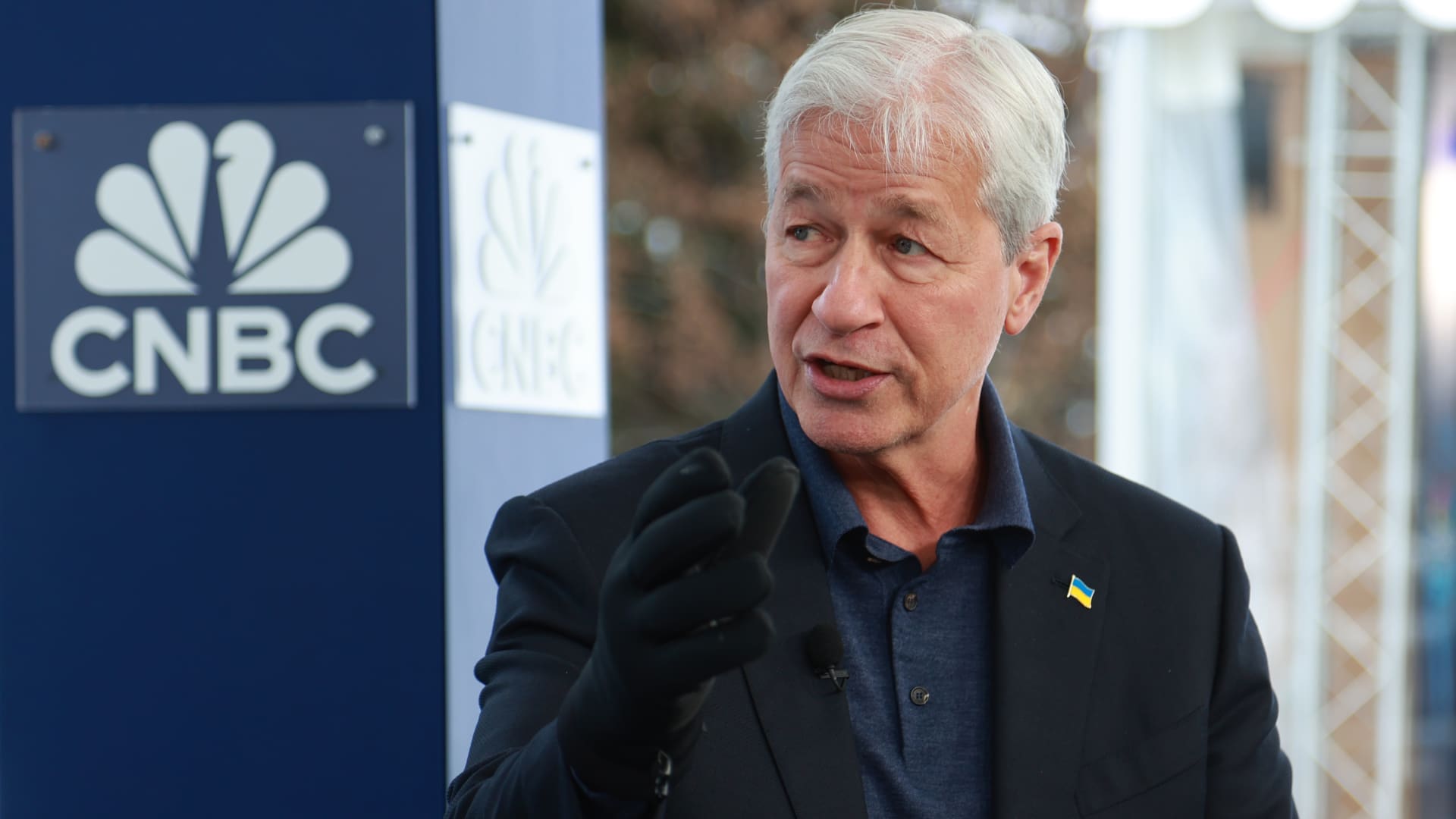Products You May Like
JPMorgan Chase CEO Jamie Dimon said he remains cautious on the U.S. economy over the next two years because of a combination of financial and geopolitical risks.
“You have all these very powerful forces that are going to be affecting us in ’24 and ’25,” Dimon told Andrew Ross Sorkin Wednesday in a CNBC interview at the World Economic Forum in Davos.
“Ukraine, the terrorist activity in Israel [and] the Red Sea, quantitative tightening, which I still question if we understand exactly how that works,” Dimon said. Quantitative tightening refers to moves by the Federal Reserve to reduce its balance sheet and rein in previous efforts including bond-purchasing programs.
Dimon has remained cautious over the past few years, despite record profits at JPMorgan, the nation’s largest bank, and a U.S. economy that has defied expectations. Despite the corrosive impact of inflation, the American consumer has mostly remained healthy because of good employment levels and pandemic-era savings.
In Dimon’s view, the relatively buoyant stock market of recent months has lulled investors on the potential risks ahead. The S&P 500 market index rose 19% in the past year and isn’t far from peak levels.
“I think it’s a mistake to assume that everything’s hunky dory,” Dimon said. “When stock markets are up, it’s kind of like this little drug we all feel like it’s just great. But remember, we’ve had so much fiscal monetary stimulation, so I’m a little more on the cautious side.”
Dimon is no stranger to harsh predictions: In 2022, he warned investors of an economic “hurricane” ahead because of quantitative tightening and the Ukraine conflict.
This story is developing. Please check back for updates.
